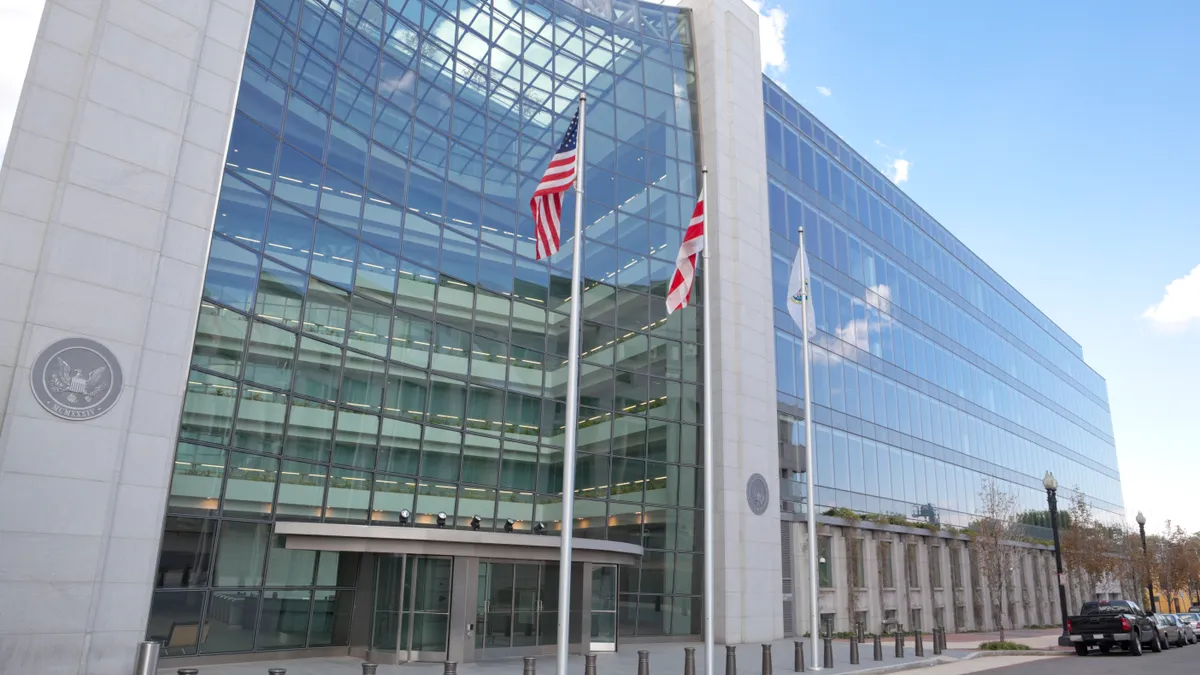Dive Brief:
- The Securities and Exchange Commission has launched an investigation into Illumina’s acquisition of Grail, the gene sequencing provider disclosed in a 10-Q filing.
- The regulator has sent the company a letter requesting documents related to the 2021 acquisition, statements and disclosures about Grail and its products, and information related to the conduct and compensation of certain members of Illumina and Grail management, according to the filing.
- Illumina said it is cooperating with the investigation. A spokesperson for the company declined to comment further.
Dive Insight:
Illumina, the genomics industry leader, continues to deal with the fallout from the $8 billion merger it completed before antitrust regulators had signed off on it.
One of the consequences was a 432-million-euro penalty imposed last month by the European Commission, which determined the company chose to move ahead after weighing the profits it could obtain by “jumping the gun.” The commission levied its maximum fine, equal to 10% of the company’s revenue.
Illumina, for its part, maintains it was up against a deadline to close the transaction and is fighting the fine.
U.S. antitrust authorities have also made clear their displeasure with the deal. Illumina is appealing an order from the Federal Trade Commission to divest Grail, maker of a multi-cancer early detection (MCED) test, after concluding the merger could stifle innovation in the rapidly evolving cancer diagnostics market.
Illumina is the dominant producer of next-generation sequencing platforms used to analyze genetic material from blood samples drawn for MCED tests. The tests target many cancer types not widely screened for today.
Illumina’s purchase of Grail was the catalyst for a proxy fight led by activist investor Carl Icahn that forced the ouster of Chair John Thompson in May. Illumina shareholders replaced Thompson on the board with Andrew Teno, a portfolio manager at Icahn Capital. Shareholders also disapproved of Illumina’s executive compensation in an advisory vote.
The company then brought onto the board Hologic CEO Stephen MacMillan and Edwards Lifesciences CFO Scott Ullem, with MacMillan becoming non-executive chair and Ullem joining the audit committee. CEO Francis deSouza resigned weeks later, and Charles Dadswell, the company’s general counsel, was named interim CEO.
Illumina made more changes to its executive team last week, when it announced the departures of Chief Medical Officer Phil Febbo and Chief Technology Officer Alex Aravanis, a co-founder of Grail, from the company. Steven Barnard, Illumina’s head of global advanced science, will become CTO.
Illumina is challenging the European Commission’s jurisdiction over the Grail deal in an appeal before the European Court of Justice. Success in that appeal would eliminate the basis for the EU fine, the company has said.
If it loses the EU appeal, or another case before the U.S. Court of Appeals for the Fifth Circuit, Illumina said it will move quickly to divest Grail. Even if it wins both appeals, it has promised to review the Grail business “to determine the optimal outcome for the asset.”
The company expects decisions in the appeals to come later this year or in early 2024.










